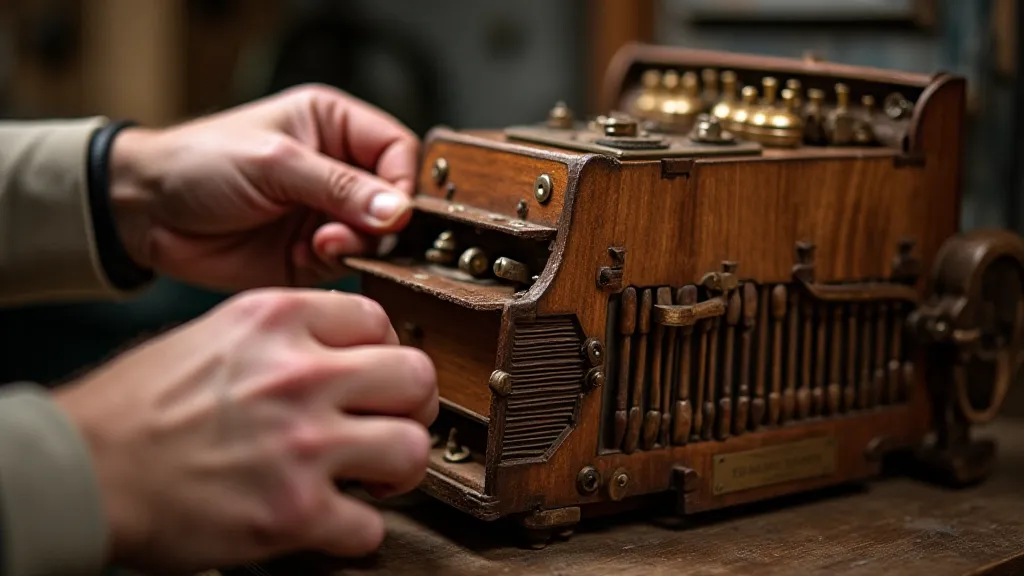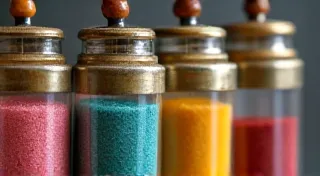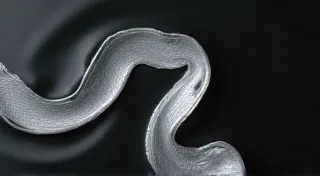Ephemeral Blooms: When a Cat’s Discomfort Manifests as Anxiety
There's a particular quality to antique accordions – a melancholic resonance, a whisper of stories played in dimly lit rooms, a tangible sense of history clinging to every button and bellows. I found mine tucked away in a dusty antique shop in Bavaria, its leather cracked, its reeds dulled by decades of silence. It reminded me, somehow, of my cat, Jasper. He's a magnificent Maine Coon, a gentle giant with emerald eyes that used to sparkle with playful mischief. Lately, though, those eyes have held a shadow. A quiet agitation I couldn't quite understand.
Jasper, like many of us, experiences the world through a lens of subtle shifts – changes in weather, fluctuations in humidity, the blooming of certain pollens. What we perceive as minor inconveniences can be a considerable burden for our sensitive companions, especially when those sensitivities impact their digestive health. And for cats, the gut-brain connection is profoundly strong. Discomfort in the digestive system can easily manifest as anxiety, restlessness, and a general unease. Suddenly, that playful giant wasn’t so gentle anymore. He's been hiding, refusing his favourite treats, and exhibiting signs of distress that broke my heart.
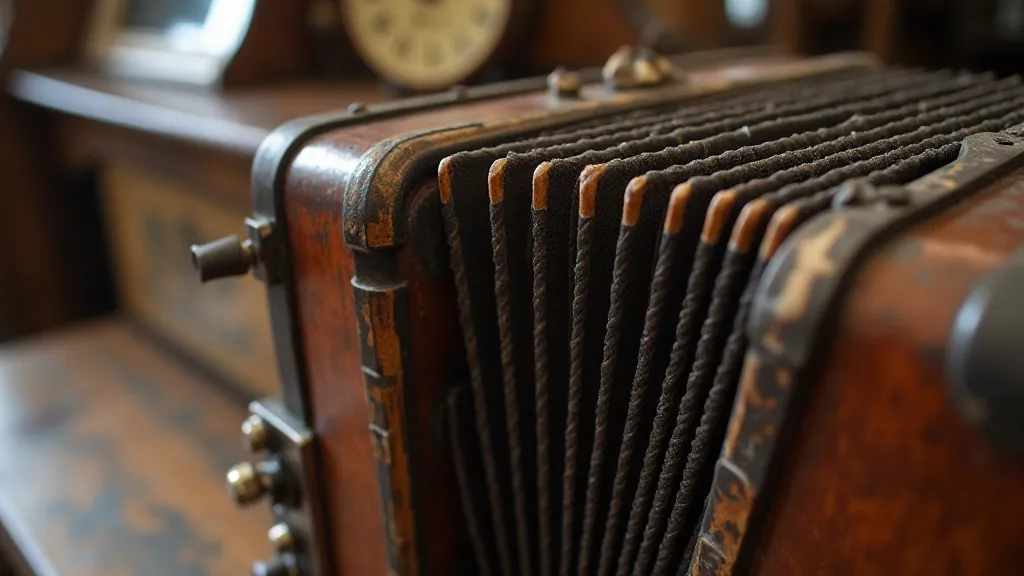
The Hidden Language of Discomfort
Before we dive into remedies, it’s crucial to understand why cats often react so intensely to environmental changes. Their digestive systems are delicate, and many common allergens – pollen, grasses, even certain types of dust mites – can irritate the gut lining. This irritation triggers a cascade of physiological responses. Inflammation can impair nutrient absorption, leading to deficiencies and further discomfort. The resulting imbalance can disrupt the delicate equilibrium of neurotransmitters in the brain, which are crucial for regulating mood and anxiety.
The symptoms can be subtle at first – a change in appetite, occasional vomiting or diarrhea, increased grooming (often a sign of stress). But as the irritation persists, it can escalate to more pronounced signs of anxiety: hiding, aggression, changes in vocalization, and a general avoidance of interaction. It’s easy to dismiss these behaviors as simply "personality quirks," but they are often desperate cries for help from a creature struggling to cope.
Gentle Remedies: Harnessing the Power of Herbs
Thankfully, we can often provide relief through gentle, natural remedies. The beauty of herbalism lies in its ability to address the root cause of the problem – the underlying digestive imbalance – rather than just masking the symptoms. It's important to emphasize that any herbal remedy for a pet must be carefully researched and prepared under the guidance of a veterinarian experienced in herbal medicine. What’s safe for humans isn’t always safe for animals, and dosages must be adjusted accordingly. But understanding the principles is crucial.
Here are a few herbs often considered beneficial for feline digestive discomfort, always used in consultation with a veterinary professional:
- Chamomile: Known for its calming and anti-inflammatory properties. It can help soothe the gut lining and reduce anxiety.
- Ginger: A powerful digestive aid that can alleviate nausea and bloating.
- Peppermint (in very small amounts): Can help relax the digestive muscles and reduce gas. *Caution: Peppermint can be stimulating for some cats, so use sparingly.*
- Marshmallow Root: A demulcent herb that coats and soothes the digestive tract.
- Dandelion Leaf (as a gentle tonic): Supports liver function and detoxification, which can aid digestion.
These herbs can be incorporated into gentle tea blends specifically formulated for cats. The blend is typically given in small amounts, mixed with water, and offered as a palatable addition to their food. The process is akin to tuning an accordion - a careful adjustment to achieve harmonious balance.
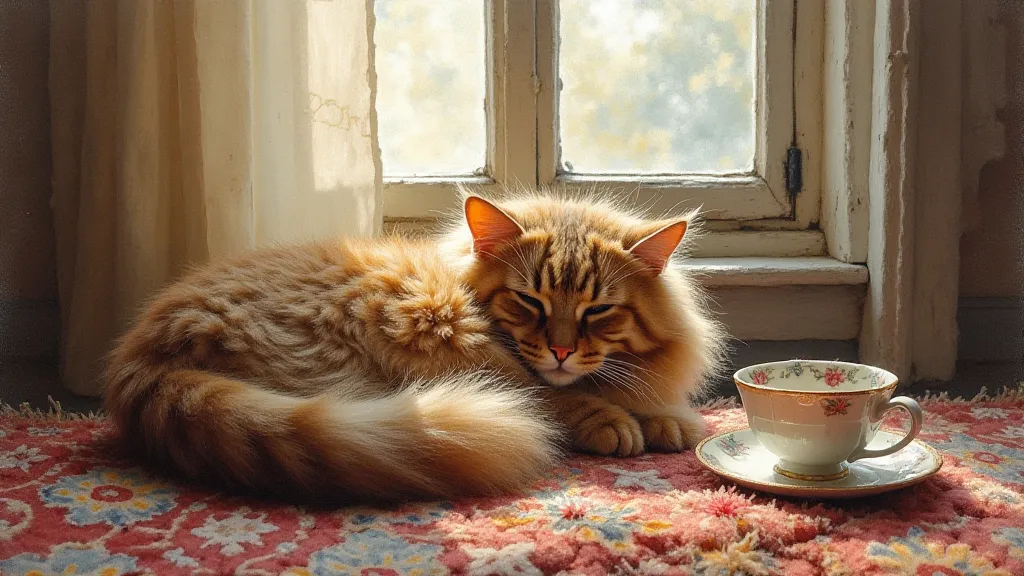
Beyond the Blend: Holistic Approaches
While herbal tea blends can offer significant relief, it’s crucial to adopt a holistic approach to your cat’s well-being. This means addressing all aspects of their environment and lifestyle.
- Diet: Ensure you’re feeding your cat a high-quality diet free of artificial additives and common allergens.
- Environment: Minimize exposure to known allergens, such as pollen or dust mites. Consider using air purifiers and regularly cleaning your home.
- Stress Reduction: Provide a safe and comfortable environment where your cat can retreat and relax. Provide enrichment opportunities, such as interactive toys and climbing structures.
- Veterinary Care: Regular checkups with a veterinarian are essential to rule out any underlying medical conditions that may be contributing to your cat’s discomfort.
Restoring Jasper's equilibrium wasn’t instantaneous. It required patience, observation, and a willingness to experiment with different herbal combinations. I’m incredibly grateful to have found a veterinarian with extensive knowledge of herbal remedies who could guide me through the process. Now, Jasper’s eyes sparkle with that familiar playfulness once again. He seeks out cuddles and enjoys his favorite treats.
The Resonance of Healing
Just as the restoration of an antique accordion requires a delicate touch, a deep understanding of its mechanics, and a reverence for its history, so too does the healing of our beloved companions. It’s about recognizing the subtle signals they send us, listening to their unspoken needs, and providing them with the gentle support they need to thrive. The connection we share with our pets is a profound and precious gift, and it’s our responsibility to nurture it with kindness, compassion, and a commitment to their holistic well-being. The harmony returns – a quiet, beautiful resonance just like the perfectly tuned bellows of an antique accordion finally ready to play its song.
